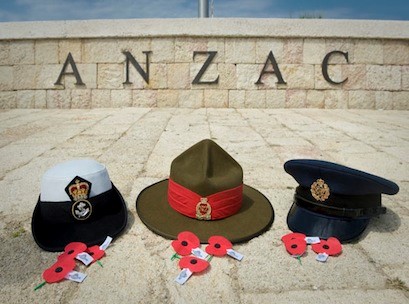Embracing the Spirit: Understanding the Traditions of ANZAC Day
Hello, wonderful parents! Today, we’re going to dive into the time-honored traditions of ANZAC Day and explore how we can share these meaningful practices with our children. ANZAC Day, observed on April 25th each year, is a significant day of remembrance in Australia and New Zealand. It is a day to honor the brave soldiers who fought at Gallipoli during World War I, as well as those who have served in subsequent military operations.
What is ANZAC Day?
Anzac Day stands as a poignant reminder of the courage, mateship, and sacrifice made by the members of the Australian and New Zealand Army Corps (ANZAC). The day has since expanded its meaning to recognize all service members who have served their country. For families, it’s an opportunity to educate the young about the glory and the gravity of the past and to foster a spirit of gratitude and respect for those who serve.
Beginning Your ANZAC Day Tradition with a Dawn Service
One of the most solemn and significant traditions of ANZAC Day is the Dawn Service. These services are held in major cities and towns, as well as at war memorials and cenotaphs across both countries, and even at various locations around the world where expatriates gather to remember. The service typically begins with a march by veterans and includes laying of wreaths, readings of remembrance, and the playing of “The Last Post,” a bugle call associated with military funerals and ceremonies commemorating those who have fallen in war.
How to Participate in a Dawn Service with Children
Participating in a Dawn Service can be a touching way for families to introduce children to the significance of ANZAC Day. It’s important to prepare kids for the early start and explain to them why the quiet reflection during this time is vital. Children can be involved in the tradition by carrying flowers or wearing medals belonging to family members who have served, providing them a personal connection to the ceremony.
Engaging with the Symbolic ANZAC Biscuit
No ANZAC Day would be complete without the mention of ANZAC biscuits. These sweet treats have a storied history. They were originally made by the wives and women’s groups sending care packages to the ANZAC soldiers abroad because they didn’t spoil easily and stayed fresh during long-haul naval transportation. Making ANZAC biscuits with your children is not only a fun kitchen activity, but it also serves as a casual yet effective history lesson.
Baking as a Learning Tool
As you mix the golden syrup, oats, and the other simple ingredients, share with your kids the story behind these hearty cookies. Discuss why they were important during the war-time and how they’re now a symbol of resilience and resourcefulness. Through this, kids will be able to touch, taste, and understand a piece of history in a tangible way.
Incorporating Stories and Books
Children often connect to history best through stories that stir their emotions. Include children’s books about ANZAC Day in your bedtime readings as the date approaches. Books like “Anzac Ted” by Belinda Landsberry and “Simpson and His Donkey” by Mark Greenwood are excellent choices to start conversations about bravery, sacrifice, and the human side of history.
Storytelling that Builds Empathy
Through these stories, children can learn about the realities of war in a manner appropriate for their age. They can understand the values that ANZAC Day promotes, such as peace, heroism, and the importance of remembering. These narratives help build empathy and a deeper appreciation for the sacrifices made by those we honor on this day.
As parents, we have a unique opportunity to guide and nurture our children’s understanding of such historic events. ANZAC Day is more than just a public holiday; it’s a chapter of our collective heritage. By engaging in these traditions, we not only pay our respects to the ANZACs but also impart crucial life lessons to the next generation. Stay tuned for more enriching details on how to further bring the spirit of ANZAC Day into your family’s life.

Five Things Parents Should Know in Preparing for ANZAC Day Traditions
- Educate Ahead of the Event: ANZAC Day is filled with history and tradition. Before the day arrives, take some time to explain the significance of this day to your children. Share facts about the ANZACs and the historical context of April 25th. This will make the participation more meaningful, as they will understand the reason behind the ceremonies and observances.
- Dress Accordingly: ANZAC Day services, particularly the Dawn Service, are formal occasions. Dressing smartly shows respect for the occasion and those being commemorated. Explain to your child why it’s important to present oneself respectfully, and, if applicable, how to wear any family medals correctly – on the right side to signify they are not their own.
- Involve Them in Traditions: ANZAC Day traditions like attending a service, baking ANZAC biscuits or crafting poppies can be a special way for children to connect with the spirit of the day. Encourage your children to participate actively, rather than being mere spectators, so they feel that they are an important part of the event.
- Prepare for the Emotional Aspect: Remembrance ceremonies can be emotional. Be ready to support your child if they feel sad or have questions about the somber tone of the day’s events. Reassure them that it is okay to feel these emotions and that it’s a natural part of paying respect to those who have made sacrifices.
- Extended Learning Opportunities: Beyond the day itself, consider visiting museums or historical sites that can offer more insights into the lives of soldiers and the ANZAC legacy. This provides a deeper understanding of the importance of ANZAC Day and can be an invaluable learning experience for the entire family.
Making ANZAC Day Meaningful for Your Family
Every family can find their own way of making ANZAC Day special and meaningful. From attending community commemorative services to engaging in home activities that reflect on the day’s significance, the practices you introduce to your children will help them carry the legacy of remembrance forward. Whether it’s through reflective moments at the Dawn Service, the sensory experience of baking, or through the imaginative journey in stories and books, ANZAC Day offers a rich tapestry of lessons and values that are just as relevant today as they were in the past.
By upholding the traditions of ANZAC Day, we provide our children with a strong sense of their national identity and the importance of service and sacrifice. This is a day to come together, to honor, and to ensure that the spirit of the ANZACs lives on in our hearts and in the hearts of our children. Let us embrace this opportunity to teach and learn, to reflect and remember, and to say with gratitude, “Lest we forget.”
See more great Things to Do with Kids in New Zealand here. For more information see here
Disclaimer
The articles available via our website provide general information only and we strongly urge readers to exercise caution and conduct their own thorough research and fact-checking. The information presented should not be taken as absolute truth, and, to the maximum extent permitted by law, we will not be held liable for any inaccuracies or errors in the content. It is essential for individuals to independently verify and validate the information before making any decisions or taking any actions based on the articles.




